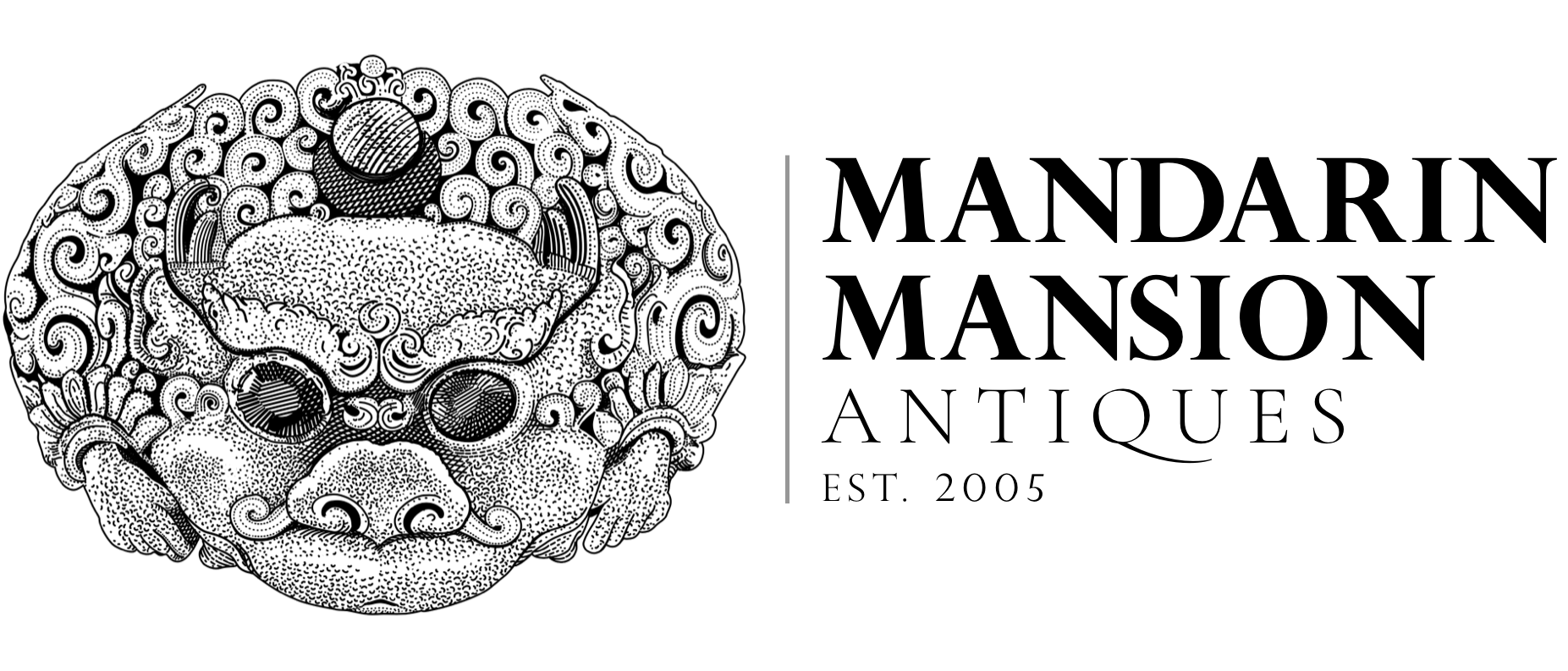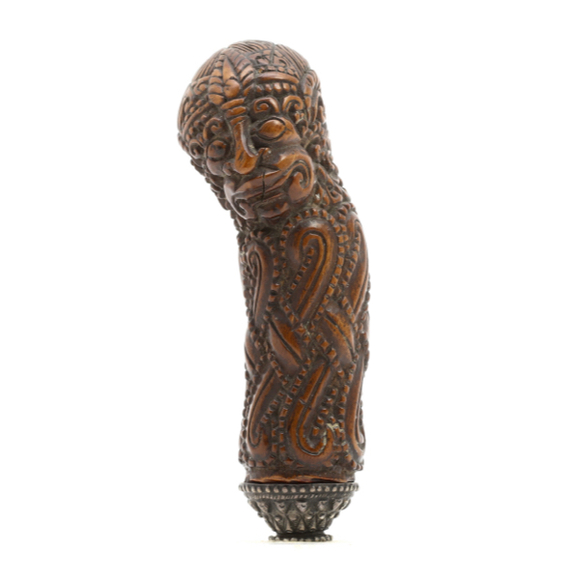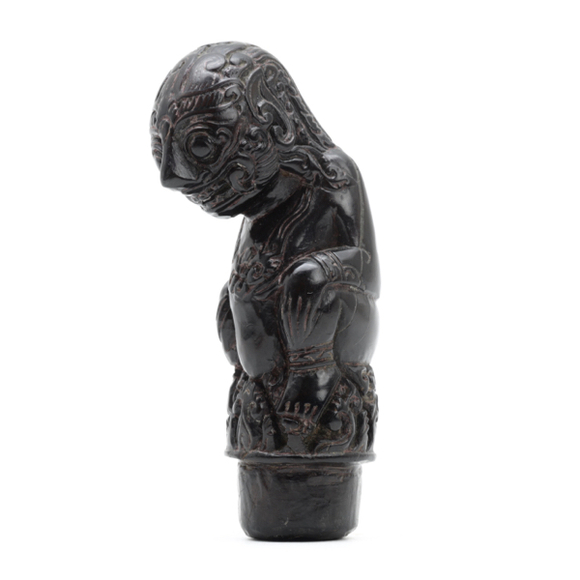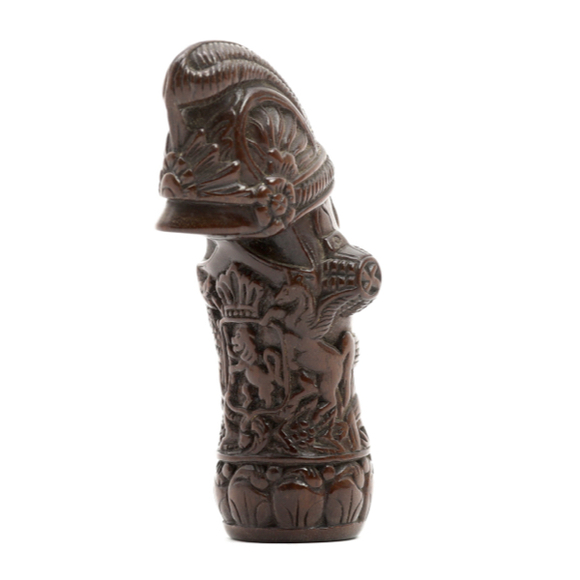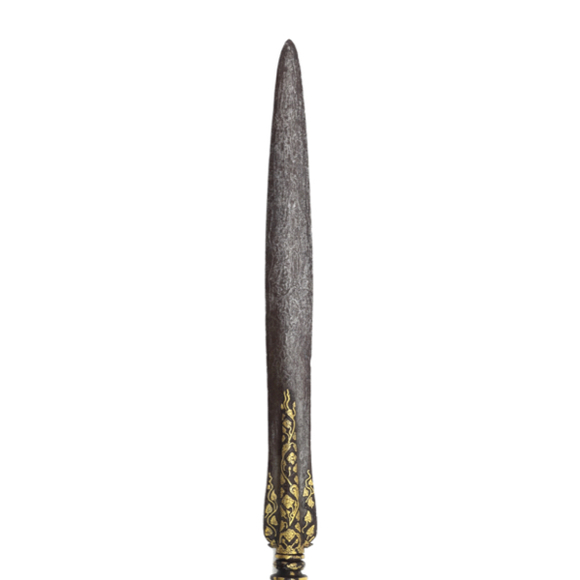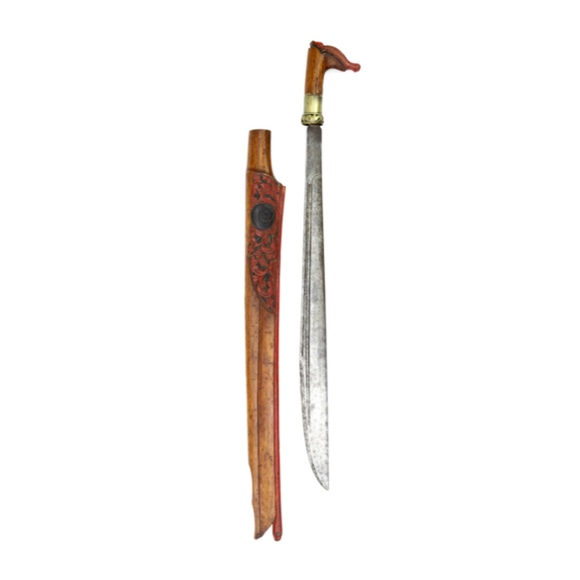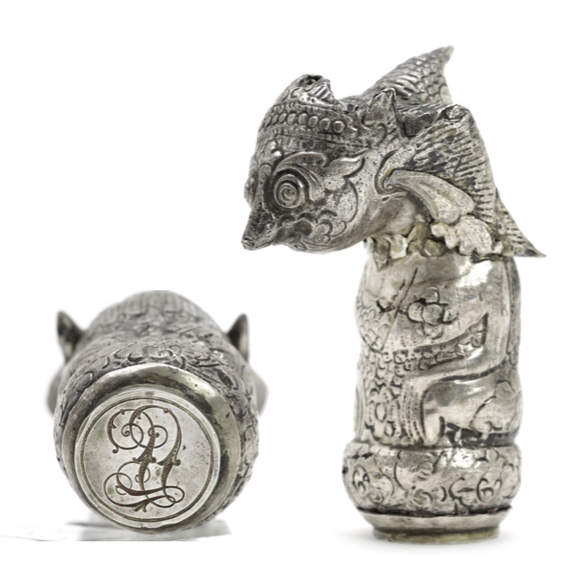Language: Javanese
Origin: Classical literature & still in common use
Description
Pamor comes from the word amor or awor which means to mix or combine. It is used to describe patterns on blades, primarily seen on keris, as well as the nickel often used to achieve this.
The material
The high contrast pamor achieved on some keris was done by forging nickel into the blade that remains bright as the arsenic lime juice mixture is used to darken the iron and steel. The source of the nickel was originally from meteors.
Types of pamor
There are five basic types of pamor from which many others have derived over time.1 The five base pamor are:
1. Pamor wos wutah, "scattered rice grains pattern"
A straightish layered pattern with burls here and there, often, especially at the base of the blade. No pamor in edges.
2. Pamor sekar pala, "muscat flower pattern"
Rows of twisted bars in the center flanked by straight grain near edges.
3. Pamor sekar ngadeg, "standing flower pattern"
Mostly straight lines running along the blade, even into the ganja.
4. Pamor blaraq ngirid, "dry coconut leaves strung together pattern"
A very fine twist-core with the pattern running mainly diagonally in relation to the blade's center line.
5. Pamor sekar temu, "ginger flower pattern"
A deeply ground twist-core where the blade surface exposes the cores of twisted steel.
Another 28 types of pamor were mentioned by Isaäc Groneman.2
Notes
1. From the manuscript Treatise on the making of kerisses, kris-handles and sheaths. Unknown author. Yogyakarta. Collection KITLV, Leiden, OR 394.
2. Isaäc Groneman; The Javanese Keris. C. Zwartenkot, Leiden, 2009.
